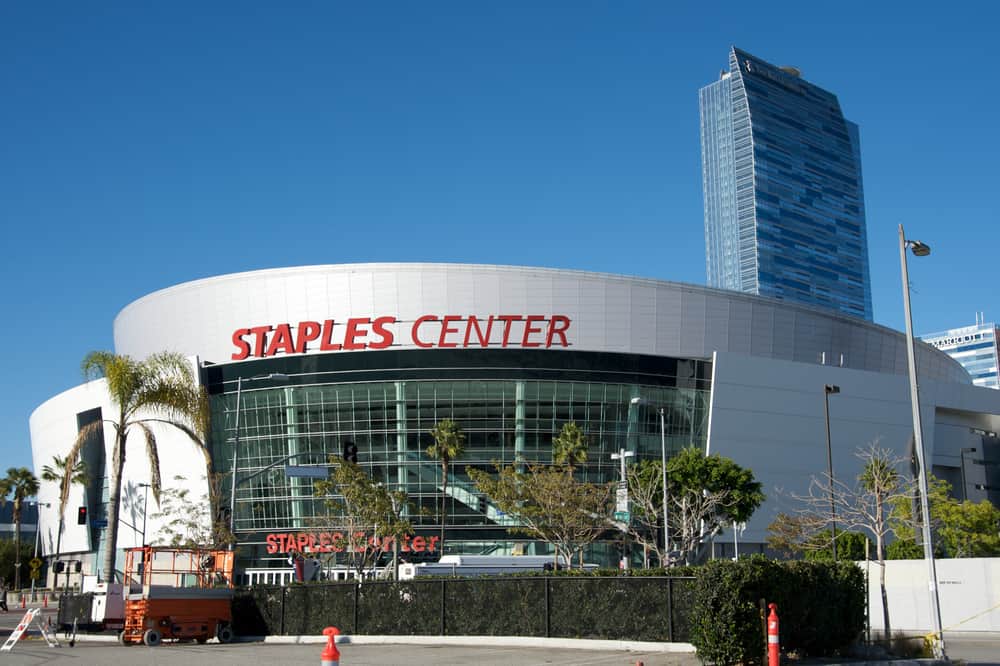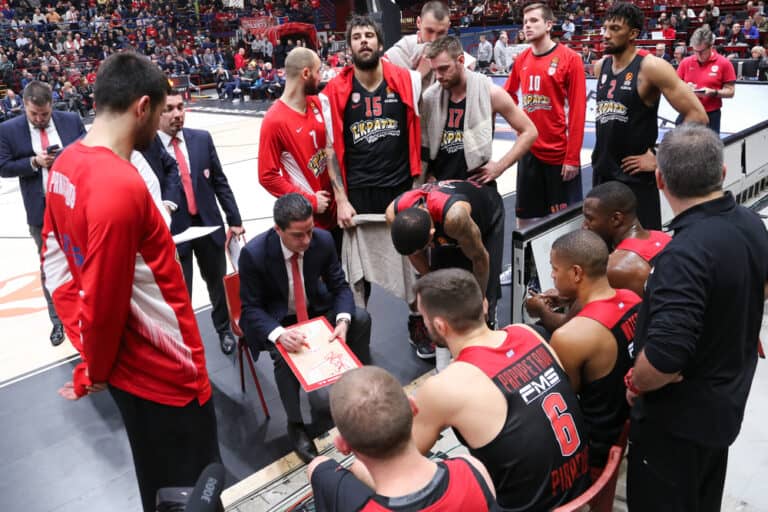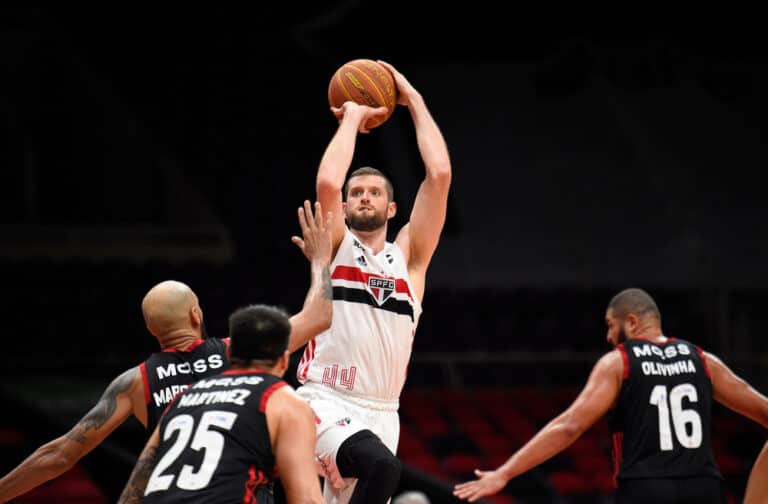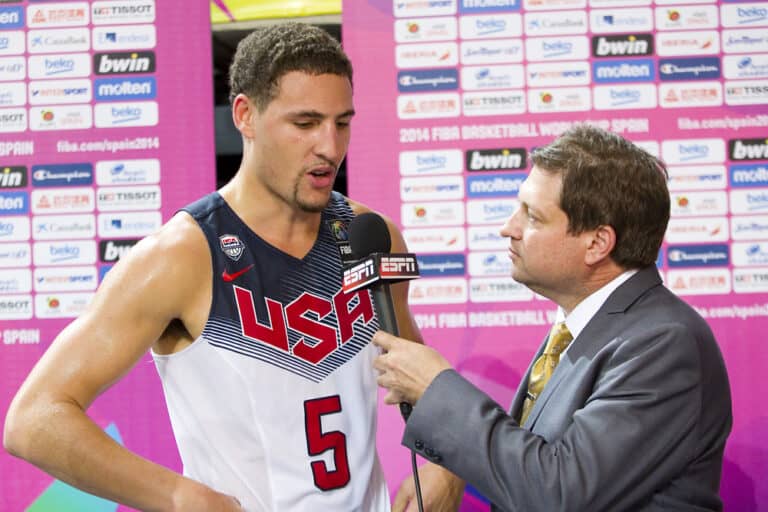Is The NBA Rigged? (Here’s The Truth)
Editorial credit: Juan Camilo Bernal / Shutterstock.com
Due to gambling, lucrative sponsorship, and fervent fans of professional sports, very few professional sports in the world haven’t had accusations of rigging, cheating, or match fixing lobbied against players and officials. So, is the NBA rigged?
While there have been some notable scandals during the history of the NBA that give credence to rumors of match-fixing and rigging, these appear to be isolated instances. Consequently, no evidence suggests that NBA games are systematically and regularly rigged.
To better understand the theories surrounding the legitimacy of NBA games and results, we will look into the possible ways games can be rigged (and the likelihood of successfully rigging a game), reasons for wanting to match-fixing in the NBA, and the history of match-fixing in the NBA.
How Can An NBA Game Be Rigged?
There are three ways people believe NBA games can be rigged:
- Players involved in match-fixing,
- Match officials involved in match-fixing,
- Playing conditions are being rigged to improve a team’s chances.
Players Involved In Match-Fixing
The most apparent method in which NBA games are believed to be rigged is that players deliberately attempt to alter the outcome of the match to the detriment of their own team or to try to reach a specific points difference tally between the two teams.
Although there have been some instances of match-fixing among basketball players in more minor and foreign leagues, official records or accounts of match-fixing by players in the NBA are limited.
The reason is that match-fixing usually requires buy-in from multiple players on both basketball teams to purposefully alter the outcome of the game. Furthermore, coaches and managers will likely need to be involved in not substituting players performing poorly during a match or season.
Furthermore, unlike more static sports that focus heavily on the performances of single players, like cricket (which has a long history of match-fixing among players!) Basketball is a fast and dynamic game that requires team collaboration to affect the outcome of a match.
Therefore, players that deliberately try to alter the outcome of a game by performing poorly (such as missing straightforward shots or fumbling passes) will quickly be identified by players, officials, and fans as downplaying their abilities, possible for nefarious means.
Moreover, allegations of cheating or match fixing will have severe consequences for players (all of which are passionate about basketball and the integrity of the sport.)
These consequences include fines, canceled sponsorship agreements, being blacklisted from joining other teams or leagues, personal and professional ostracization, and limited post-basketball employment opportunities like coaching or commentating.
Coupled with the lucrative endorsement deals and salaries of NBA players, it becomes increasingly difficult to imagine why players would risk their careers through match-fixing, all hoping to secure a small number of illicit funds.
Match Officials Involved In Match-Fixing
A more common method of match-fixing is for match officials to rig the outcome or influence the outcome of the game by making biased calls that favor one team over another.
Unlike players, match officials who have agreed to external influences to rig the outcome of NBA games can significantly alter a game without buy-in from other people. The reason is that a single match official can blow the game in such a way as to disadvantage one team over the other significantly.
Furthermore, because the rules of a basketball game are subject to interpretation, whereby human error can often affect the calls made in a game (including genuine mistakes on the part of match officials), it is much easier for rigged match officials to conceal their nefarious deeds.
Consequently, there have been multiple instances of NBA match officials rigging games for various reasons. The most high-profile example is the 2007 NBA Betting Scandal involving Tim Donaghy.
The 2007 NBA Betting Scandal was an investigation spearheaded by the FBI, with support from the NBA, following tip-offs that NBA match officials with links to organized crime had been using insider knowledge to bet on the outcome of NBA games.
The joint investigation led to uncovering the actions of NBA referee Tim Donaghy, wherein he was found to have used insider knowledge to bet on hundreds of games, including games he had refed.
Further instances of rigging and causing detriment to the reputation of the NBA included using insider knowledge to pass on information to basketball punters in exchange for cash following positive outcomes.
While Tim Donaghy claims that he never deliberately rigged games with biased calls in favor of one team, his actions merited internal and external discipline. In 2007, following years of unlawful betting and dispensation of insider knowledge, Tim Donaghy pleaded guilty to two felonies of conspiracy.
Along with his confession, Tim Donaghy alleged examples of rigged officiating across the NBA, usually to extend the number of playoff matches between teams vying for further progression in the league.
Tim Donaghy received a 15-month prison sentence in 2008, whereafter he was granted a three-year supervised release.
Playing Conditions Being Rigged To Improve A Team’s Chances
The final method of rigging a basketball game would be to alter the playing conditions in such a way as to complement the playing style of one team to the detriment of the other.
Examples of rigging playing conditions may include:
- Inflating basketballs to varying degrees of firmness.
- Tampering with the conditions of the court.
- Redrawing the lines of the court.
- Adjusting the size and height of the hoop.
While it may be possible that amateur leagues may have instances of conditions being rigged to unduly favor one team over another, there is very little room in the NBA for the conditions of the game to be altered, whether it be by the players, match officials, or the court staff.
The reason is that the NBA is subject to strict playing conditions, which are legislated and monitored by a governing body. Consequently, any evidence of tampering with playing conditions or having a court that is not satisfactory to host an NBA game will likely result in a game being postponed or abandoned.
Therefore, while allegations of ball tampering or alteration of playing surfaces may have been an issue during the early years of the NBA, the professionalism of the sport in the 21st century (especially considering the role of sponsorships and endorsements at games) means that successfully rigging NBA games through playing conditions is highly unlikely.
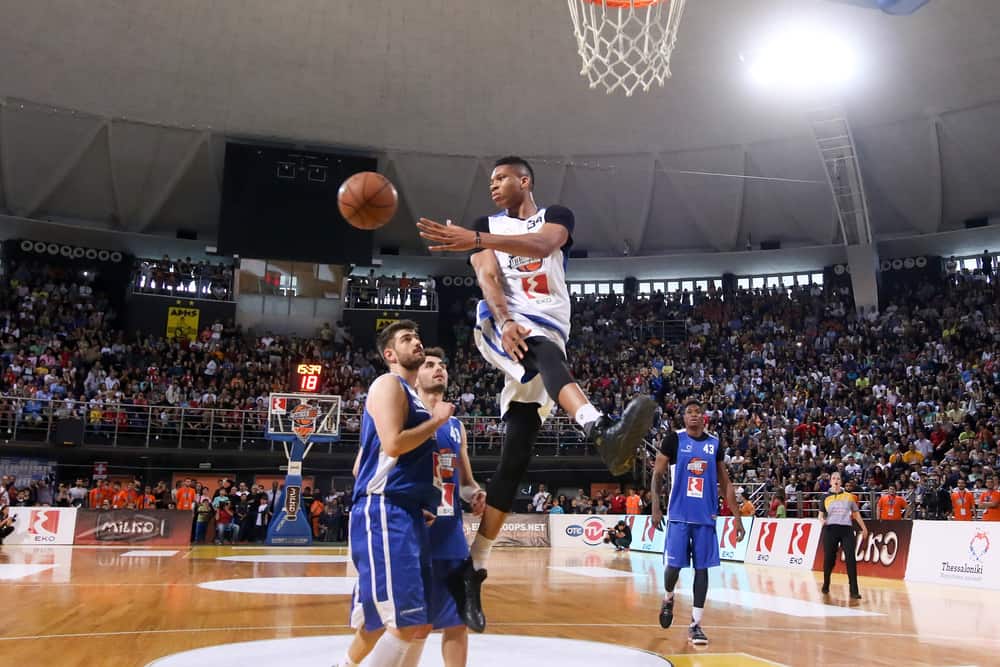
Why Would People Rig NBA Games?
The most obvious reason why someone would want to rig an NBA game is to earn money via illicit means, such as creating an upset among the betting community, while using one’s inside knowledge to take advantage of the rigged result.
Another reason some fans speculate is a direct benefit to the NBA is to extend playoff games. Namely, a team that has won fewer games during playoff matches have matches rigged in their favor to extend playoff games as long as possible.
The benefit of extending playoff games is three-fold:
- It results in increased viewership and tickets sold as the number of games are increased,
- It attracts more casual fans to the competition, as it leads to an intense end to the playoffs,
- It improves the relationship between the NBA, sponsors, and betting houses.
Although this may seem like a smart, albeit dishonest, business decision, there is little evidence to suggest the NBA (or anybody else for that matter) actively rigs playoff games in the hope of extending the number of games between two teams.
Finally, games may be rigged simply to secure victory. However, as mentioned above, the consequences for players, teams and match officials that are found guilty of cheating or match-fixing constitute a significant deterrent in combating unsportsmanlike behavior.
The History Of Match-Fixing In The NBA
Despite being an active league for over seventy years, there are limited instances or accounts of match-fixing and rigging (despite the conspiracy theories and rumors perpetuated by some critics of the NBA.)
However, the recent testimony of Tim Donaghy in 2008 (see above for more details) has added fuel to the once-dormant conspiracy fires.
The Netflix documentary, Untold: Operation Flagrant Foul provided a deep dive into the Tim Donaghy scandal; which included further allegations against the league by Donaghy himself:
“I [Tim Donaghy] called what the NBA wanted me to call. The way David Stern (NBA commissioner) structured the league, we as officials knew it was better to treat the star players than the others.”
Further to the above, Tim Donaghy further claims that the extension of NBA playoff games was a common cause, as a clean sweep was terrible for the NBA’s profit margins.
He specifically cited game six of the 2002 Western Conference Finals between the LA Lakers and Sacramento as the “worst officiated game in the history of the NBA.” Wherein three referees received bonuses following the victory by the LA Lakers.
The NBA has publicly criticized Tim Donaghy for his remarks and denied all wrongdoing, describing Donaghy as “a convicted felon” and saying that “there is no basis now to revisit any of this.”
Conclusion
In conclusion, given that it is extremely difficult to rig NBA games and that the few people that are found guilty of doing so are met with harsh consequences, it is improbable that NBA games are rigged.
References
- https://www.quora.com/Is-there-any-proof-the-NBA-is-rigged-Do-people-think-that-NBA-games-are-fixed
- https://www.cbssports.com/nba/news/infamous-nba-referee-tim-donaghy-to-have-documentary-made-about-his-story-per-report/
- https://www.thedailybeast.com/inside-the-game-fixing-scandal-that-rocked-the-nba
- https://en.wikipedia.org/wiki/2007_NBA_betting_scandal
- https://webnews21.com/is-the-nba-rigged-nba-finals-rigged-to-go-seven-games/
- https://www.businessofbusiness.com/articles/nba-last-two-minute-reports-dissected/
- https://bleacherreport.com/articles/187137-breaking-news-the-nba-is-fixed-the-incredible-story-of-greed
- https://www.foxsports.com.au/basketball/nba/disgraced-nba-ref-tim-donaghys-claims-of-rigged-finals-are-complete-nonsense/news-story/d21fe141dcf848979b16812676df15ff
- https://www.vegasslotsonline.com/news/2022/09/14/tim-donaghy-documentary-suggests-nba-match-fixing-ran-all-the-way-to-the-top/
- https://bleacherreport.com/articles/2731438-nba-tampering-101-if-youre-not-cheating-youre-not-trying

